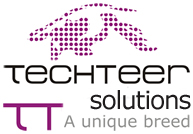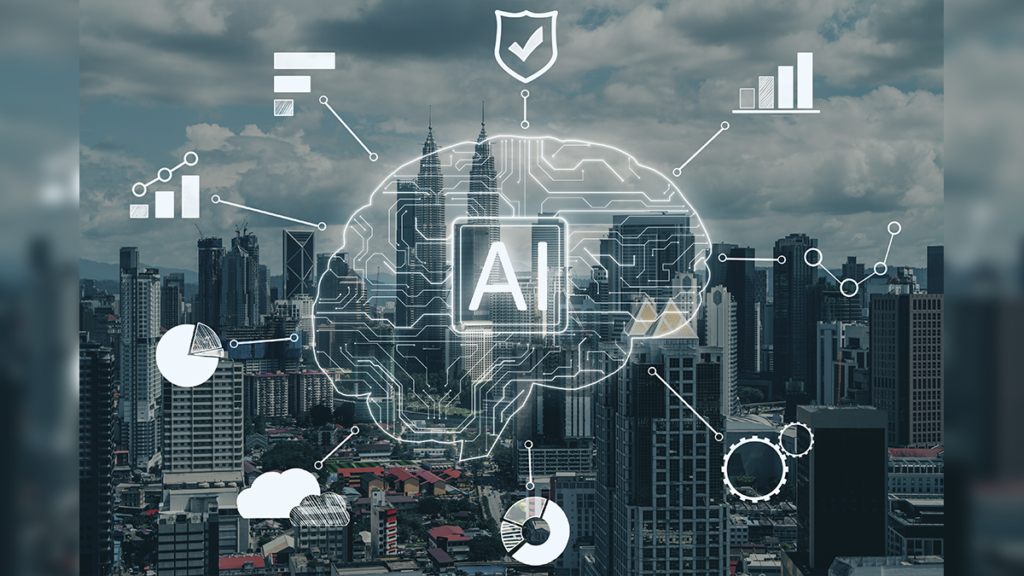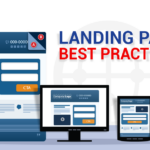Artificial intelligence (AI) is no longer a concept or a technology focused on robots. It has a wide range of applications for marketers to automate tasks, personalize content, organize leads, or analyze and predict customer behavior.
That’s why there has been an explosion in new AI tools and technologies. Technology companies are racing to create bigger and better tools to help brands across industries improve productivity and increase efficiency.
AI is changing digital marketing. It is offering people new ways to search and be found online, get tailored recommendations, communicate with brands (e.g. chatbots) and access information such as through voice search.
When it comes to the best uses of AI in marketing, a recent survey with our members found that 68% believe it’s most useful for automating routine tasks, 46% say improved customer experience, and 45% say improved targeting and segmentation.
What are the Pros and Cons of AI in Marketing?
AI is no different from any other technology in that there are pros and cons to using it. It’s important for marketers to be aware of these so they can make decisions about what tasks to use AI for and how to use it.
The Pros
Boosts productivity – Free up your time by automating repetitive tasks so you can focus on being more creative and strategic. For example, why not consider using AI tools to schedule and post on your social media channels based on insights such as time of day to post?
Drives efficiency – Use AI to be more efficient in your day-to-day tasks such as data input, sorting campaign leads, and replying to customer queries.
Offers insights – Use AI’s data-driven capabilities to get insights into customers and campaigns to feed into strategic decisions.
Personalize at scale – Analyze customer data and create tailored content or recommendations to enhance customer experience. This could be useful in your email marketing where AI can target customer segments with tailored messaging based on actions or preferences at scale.
Content generation and optimization – Generate optimized content at scale for all digital channels using AI tools. Optimization is particularly important for SEO so you can input prompts into a tool like ChatGPT to target particular keywords or phrases that feed into customer intent.
Boosts ROI – Use AI insights to predict buying behavior to improve user experience and provide relevant content at each stage of the marketing funnel.
Predictive analysis – Predict market trends or customer behavior using historical data to help more accurate and effective planning.
The Cons
Lack of accuracy – Errors in your data can lead to inaccuracies in analysis and costly business decisions.
Requires skills – AI tools are more accessible to marketers but they still require knowledge and skills to use them effectively. This makes upskilling and hands-on experience with AI tools important.
Bias – AI is only as effective as the data it uses so you need to be aware of the possibility of gender, racial, cultural, or socioeconomic biases.
Data sensitivity and security – AI systems can use extensive datasets which may include sensitive information that needs to be managed securely.
Ethics – Ethical concerns include consent, the manipulation of user data and behavior, and the ‘stalking factor’ in hyper-targeted ads.
Transparency – Questions about plagiarism, authorship, transparency, and intellectual protection will be more relevant as AI-generated content becomes more commonplace.
What are the Different Types of AI?
There is a wide range of tools, techniques, and methods in AI that enable machines to perform tasks that traditionally require human intelligence. Here are some of the most commonly-used AI technology types and some great examples of AI in marketing.
1) Machine Learning
Machine learning (ML) is a process where machines can figure out how to problem-solve on their own by drawing on previous data sets and making predictions on decisions based on data. This means they “learn” on their own.
For marketers, machine learning can be applied to a number of applications such as ad targeting, lead generation, and search engine optimization.
Platforms such as Facebook, X, and Instagram use ML in their social media algorithms to provide a better user experience and make it easier to use.
For example, ML can analyze large sets of customer data to identify patterns and categorize customers based on behavior, preferences, demographics, location and purchasing history. This can help you craft tailored content for each customer segment for emails, landing pages or social media posts.
2) AI assistants & chatbots
Chatbots are an example of a tool that uses ML and Natural Language Processing (NLP) to interact with clients and customers. They can answer customer questions or queries and fulfill orders.
It’s now common to go onto a website and get a chatbot popping up to ask if you need help with anything. You can now even build a chatbot in Meta Messenger to act as an autoresponder. Platforms like Drift and Intercom can help you offer automated response platforms and gather information about visitors.
Lyro is an example of a conversational AI that talks to customers and answers questions. It is used by brands such as Glossier, Uber, and Netflix to manage customer queries.
3) Voice Search
AI has the capacity to handle a variety of types of searches, including voice recognition. Moreover, they can integrate various types of search methods to customize results.
Voice search is on the rise. In fact, 62% of Americans use a voice assistant while 36% own smart speakers like Alexa or Siri according to NPR and Edison Research.
For example, Google uses AI through its voice recognition technology which is integrated into its products and services such as Google Search (particularly with Google’s Search Generative Experience to be rolled out globally), Google Assistant, and Google Home devices.
Voice search is also important for SEO optimization as people turn to asking devices for information and expect accurate information from brands.
4) Marketing Automation & Personalization
AI marketing automation uses AI and machine learning algorithms to automate and optimize marketing activities.
Machine learning and AI are used to understand buyer behavior and decision-making and the more it understands, the more advertisers will be able to target their marketing strategies towards consumer preferences.
The benefits of using AI-powered marketing automation are:
Enhances personalization – We all know what it’s like to come across messaging that speaks to us and our needs. That’s why personalization is so important for marketers today and AI helps create tailored content that reaches the right people at the right time.
Cost-effective – Repetitive marketing tasks can take up valuable time and resources, so using AI can help free up time to focus on more strategic tasks.
Boost ROI – AI can help marketers identify new growth opportunities, optimize ad spending and improve customer engagement.
Enable data-driven decisions – By analyzing customer data and behavior, AI can give data-driven insights that inform business decisions and marketing campaigns.



